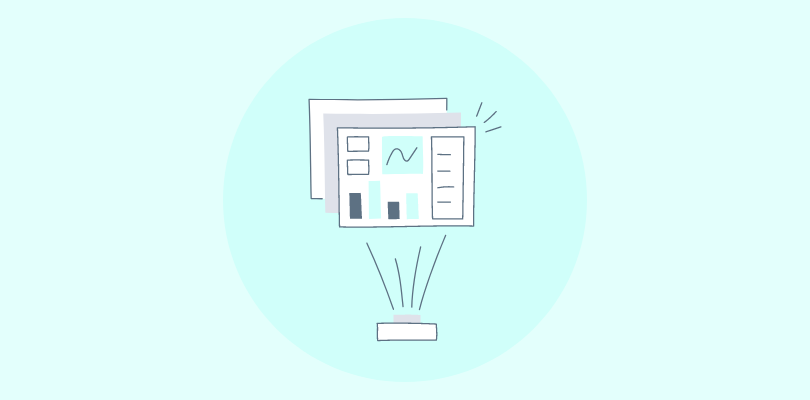There is only one boss. The customer. And he can fire everybody in the company—from the chairman on down, simply by spending his money somewhere else.
– Sam Walton
I couldn’t agree more! Customers demand quick resolutions, personalized interactions, and effortless support experiences. But all too often, they’re met with long wait times, unhelpful responses, and fragmented communication. The result? Frustration that drives them straight to your competitors.
The truth is, many businesses struggle to meet these expectations because their systems are disorganized, and their workflows lack efficiency. This is where a CRM for customer service comes in. It bridges the gap between businesses and customers by organizing interactions in a unified view, managing workflows, and ensuring every query is addressed promptly. But it’s not just about resolving issues; it’s about fostering trust and loyalty.
In this guide, I’ll introduce you to the top 5 CRM tools for customer service, each designed to help businesses deliver exceptional support while building lasting connections with their customers.
What Is the Role of CRM in Customer Service
Customer expectations have become higher than ever. That’s where CRM steps in, acting as the backbone of efficient customer service.
So, what exactly does CRM do in this space?
A CRM system helps you keep track of every interaction with your customers, whether it’s a phone call, email, or chat. This ensures that no customer query falls through the cracks. Imagine being able to pull up a customer’s history in seconds—previous complaints, preferences, and purchases. That’s the power of CRM for customer support.
But it’s not just about managing data. CRM tools also help in managing workflows, allowing your team to respond faster and more effectively. Automated features like ticket management and follow-up reminders save time and keep everyone on the same page.
Ultimately, the role of CRM in customer service is to make your job easier while keeping customers happy. When used right, it becomes your ultimate tool for building stronger, long-lasting relationships with your audience.
What Are the Benefits of Using CRM for Customer Service
Using CRM for Customer Service can completely transform how you interact with your customers. Here are eight key benefits:
1. Streamlines Customer Interactions
A CRM system centralizes all customer data, giving you a 360-degree view of each interaction. This means you can quickly access past conversations, preferences, and issues, making your interactions smoother and more efficient. When you know your customer’s history, you can address their concerns faster, saving time for both you and the customer.
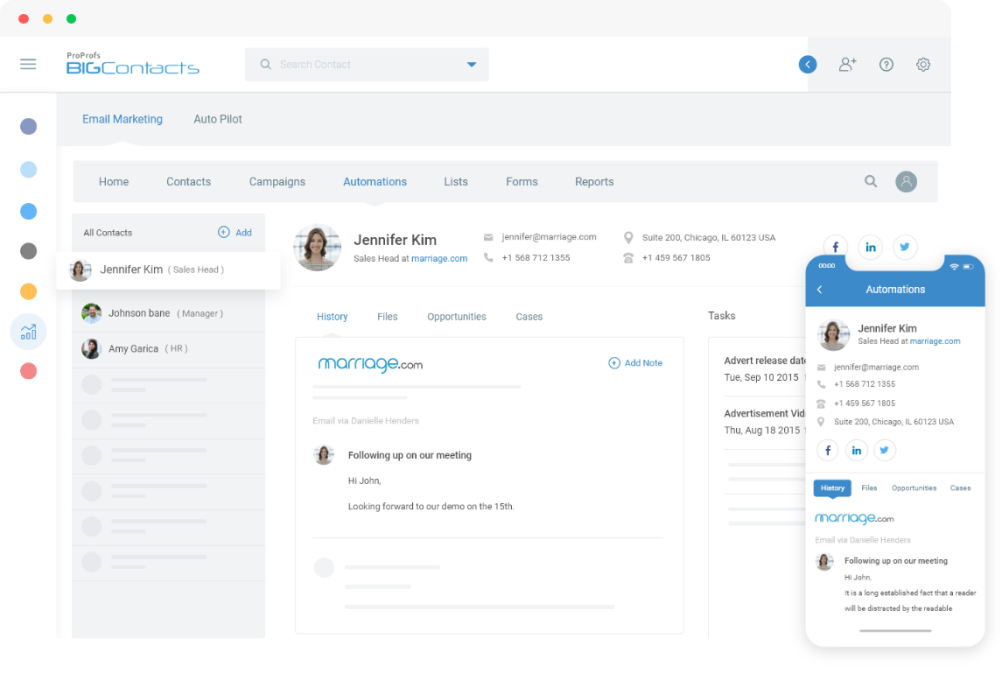
2. Improves Response Times
With features like automated ticketing and reminders, CRM ensures you never miss a customer query. It prioritizes tasks, routes them to the right team, and tracks their progress. This significantly reduces wait times, showing your customers you value their time and satisfaction.
3. Enhances Personalization
CRM tools allow you to tailor your responses based on a customer’s past behavior and preferences. Personal touches, like using their name or referencing previous purchases, make customers feel valued. This builds loyalty and fosters trust in your brand.
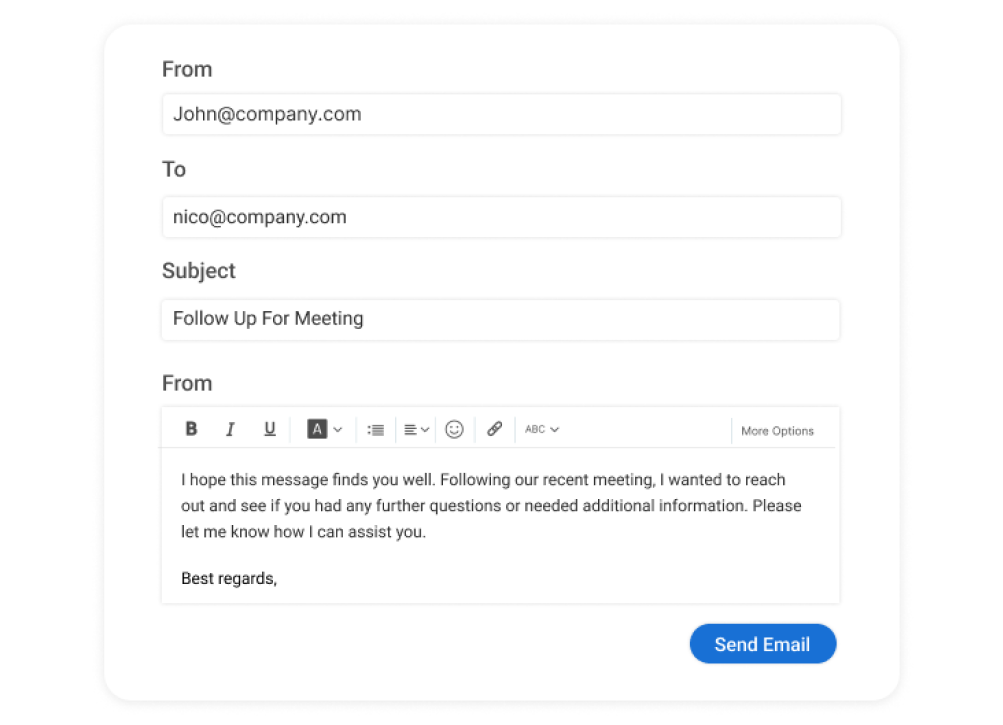
4. Facilitates Proactive Support
With CRM analytics, you can predict issues before they arise. For example, if a product recall affects certain customers, you can notify them in advance. Proactive communication not only solves problems early but also boosts customer confidence in your brand.
5. Provides Real-Time Insights
CRM systems generate reports and insights into your customer service performance. Metrics like response times, resolution rates, and customer satisfaction scores help you identify areas for improvement. This ensures you’re always optimizing your service.
6. Enhances Team Collaboration
Since all customer data is stored in one place, your team can work together seamlessly. Whether a customer switches from chat to email, everyone has the context needed to pick up where the last interaction left off. This prevents miscommunication and keeps your service consistent.
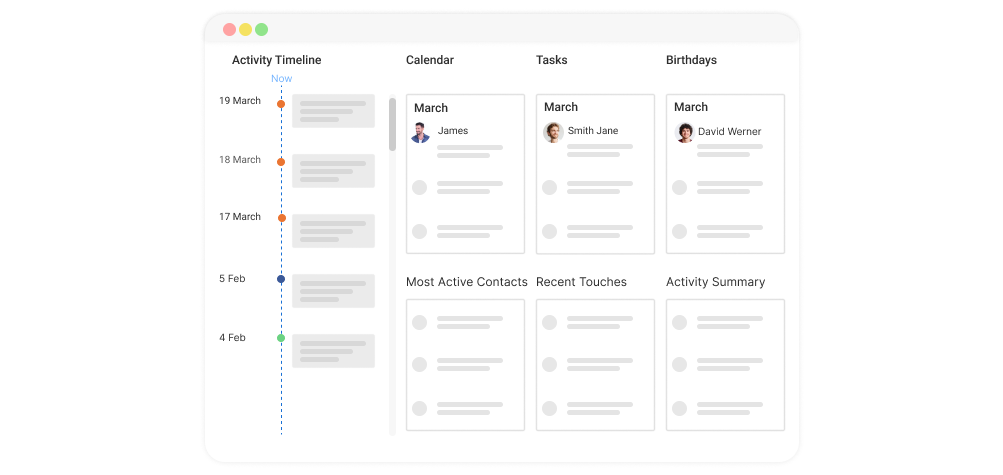
7. Builds Customer Loyalty
When you resolve issues quickly, communicate effectively, and personalize experiences, customers notice. A CRM helps you exceed expectations, turning one-time buyers into loyal advocates for your brand. Loyal customers are not only easier to retain but also more likely to refer others.
8. Supports Scalability
As your business grows, so does your customer base. A CRM scales effortlessly, managing thousands of interactions without losing efficiency. It also integrates with other tools, ensuring your service keeps pace with your expansion.
By leveraging CRM for customer service, you ensure that every interaction counts, helping your business thrive while keeping your customers happy.
Key Features of CRM for Customer Service
Customer service is all about providing efficient, personalized support, and a CRM system is a powerful tool to help you achieve that. With the right features, CRM can streamline processes, enhance customer interactions, and improve overall satisfaction.
Here are the key features that make CRM an invaluable asset for customer service.
1. Centralized Customer Information
A CRM system keeps all your customer data in one place, making it easy for you to access important details. Whether it’s a customer’s contact information, past interactions, or purchase history, everything is readily available.
This centralized information helps you offer more personalized service because you can instantly see what your customer needs or prefers. No more searching through multiple systems or files to get the right details – it’s all in one place!
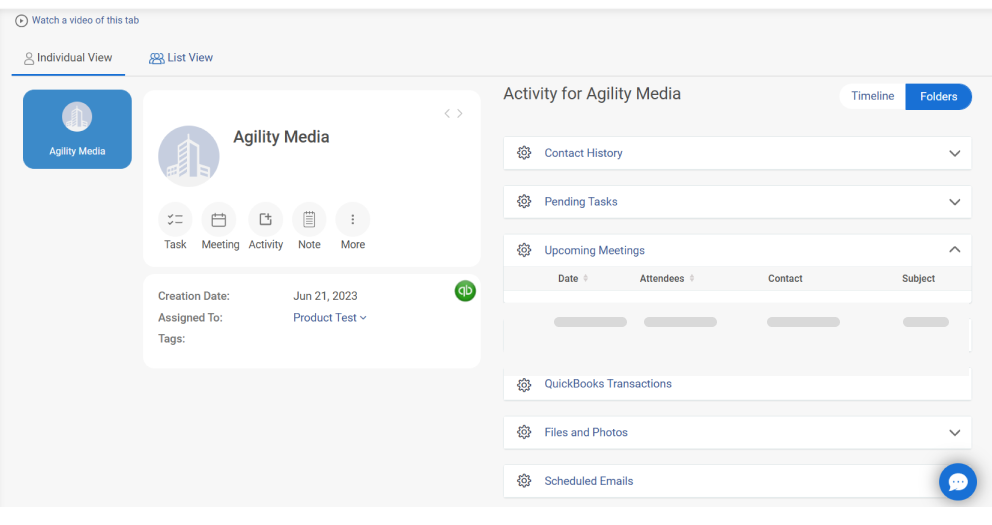
2. Automated Ticketing System
CRM systems come with automated ticketing features that create support tickets for every customer issue. This means that when a customer reaches out with a problem, the CRM automatically generates a ticket and assigns it to the appropriate team member.
It helps ensure that no issue goes unnoticed and every request is followed up on. You can even track the progress of these tickets to make sure they’re being handled quickly.
3. Customer Interaction History
Having a record of all past interactions with customers is invaluable. CRM systems log every email, phone call, or chat conversation. This history helps you understand previous issues, solutions provided, and customer preferences.
When a customer contacts you again, you don’t have to start from scratch; you can quickly refer to their past concerns and provide a quicker, more informed solution.
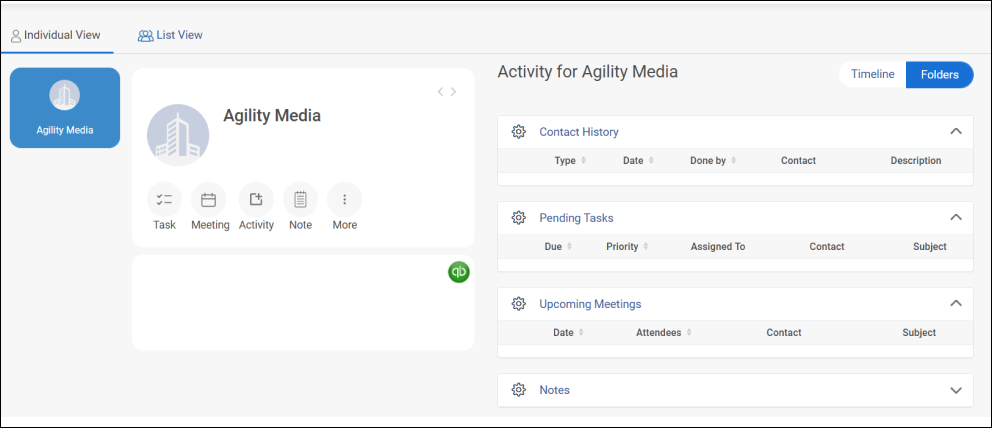
4. Self-Service Portal
Many CRM systems include a self-service portal where customers can find answers to common questions, submit service requests, or track their ticket statuses. This feature allows customers to solve problems on their own, saving both their time and yours.
It’s especially useful for simple issues that don’t require direct support. By providing customers with 24/7 access to resources, you can improve customer satisfaction while reducing the workload on your service team.
5. Real-Time Analytics and Reporting
CRM systems offer powerful analytics tools that give you real-time insights into your customer service performance. You can monitor response times, ticket resolution rates, and customer satisfaction scores, allowing you to identify trends and areas for improvement.
This data-driven approach helps you optimize your customer service operations, set goals, and track your team’s performance to ensure continuous improvement.
6. Automated Follow-Ups
Following up with customers after a service interaction is key to ensuring satisfaction, and CRM systems automate this process. After resolving a customer’s issue, the CRM can automatically schedule follow-up emails or reminders to check in with them.
This not only keeps customers happy but also shows that you genuinely care about their experience. Automated follow-ups help maintain a positive relationship and increase the chances of repeat business.
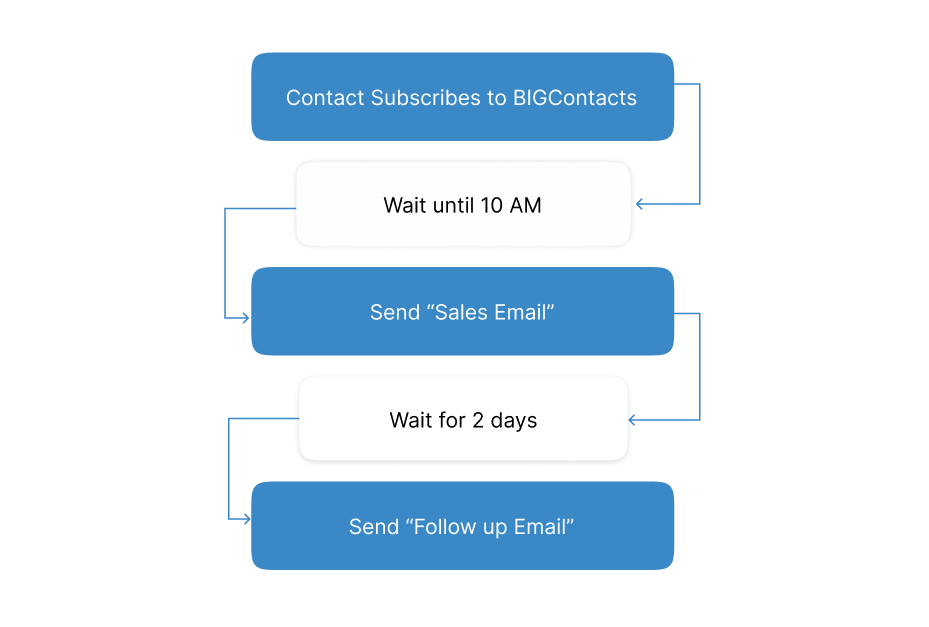
7. Multi-Channel Support
Today, customers expect to interact with businesses across multiple channels—phone, email, chat, social media, and more. CRM systems provide multi-channel support, allowing you to handle all customer communications from a single platform.
This feature ensures you never miss a customer query, regardless of how they reach out. It also helps maintain consistency in communication across channels, giving your customers a seamless experience.
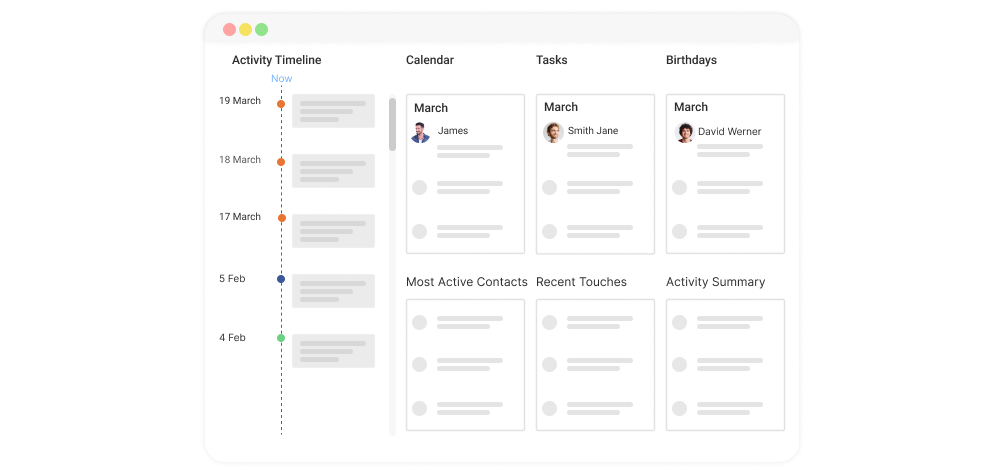
8. Knowledge Base Integration
Many CRMs integrate with knowledge base tools that allow you to create and store helpful resources, FAQs, and troubleshooting guides. Customers and agents can easily search the knowledge base for solutions, reducing the time spent resolving common issues.
This feature empowers customers to help themselves, reducing the load on your support team while ensuring customers can access the information they need quickly.
If you’re still curious to know what it is and how it works, check out this quick video!
9. Task and Workflow Automation
CRM systems often come with automation tools that streamline daily tasks, such as assigning tickets, sending reminders, or updating customer records. By automating these routine processes, you free up more time for your team to focus on more complex tasks, which can improve overall productivity and service quality.
Plus, task automation ensures consistency and reduces human error, helping to maintain high standards across your customer support operations.
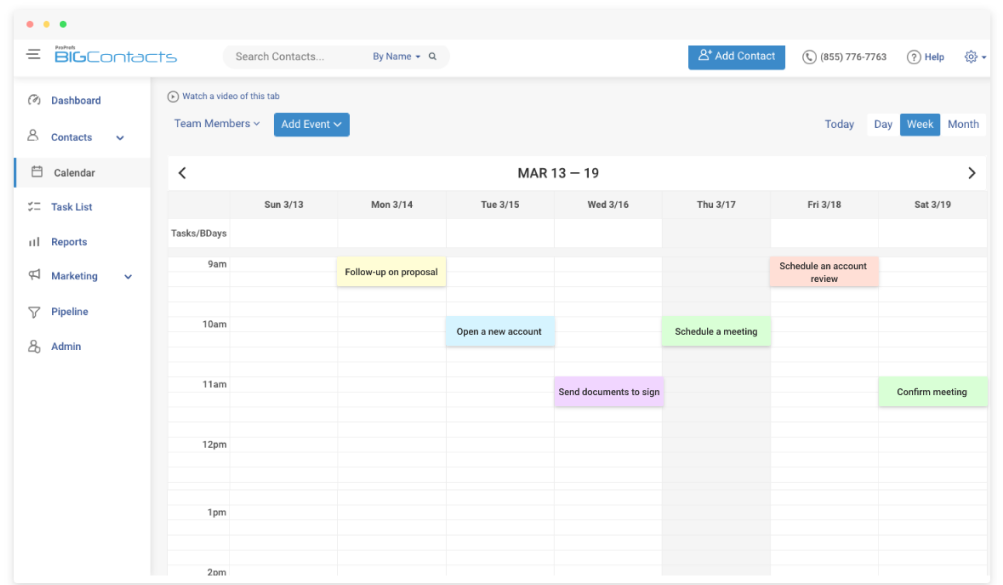
10. Collaboration Tools
CRM platforms often include collaboration features that lets your customer service team to work together more effectively. Whether it’s sharing notes, discussing ticket statuses, or escalating issues to different departments, these tools make it easier to collaborate on customer concerns.
By improving teamwork, CRMs ensure that everyone is aligned and working towards the same goal: providing the best possible service to customers.
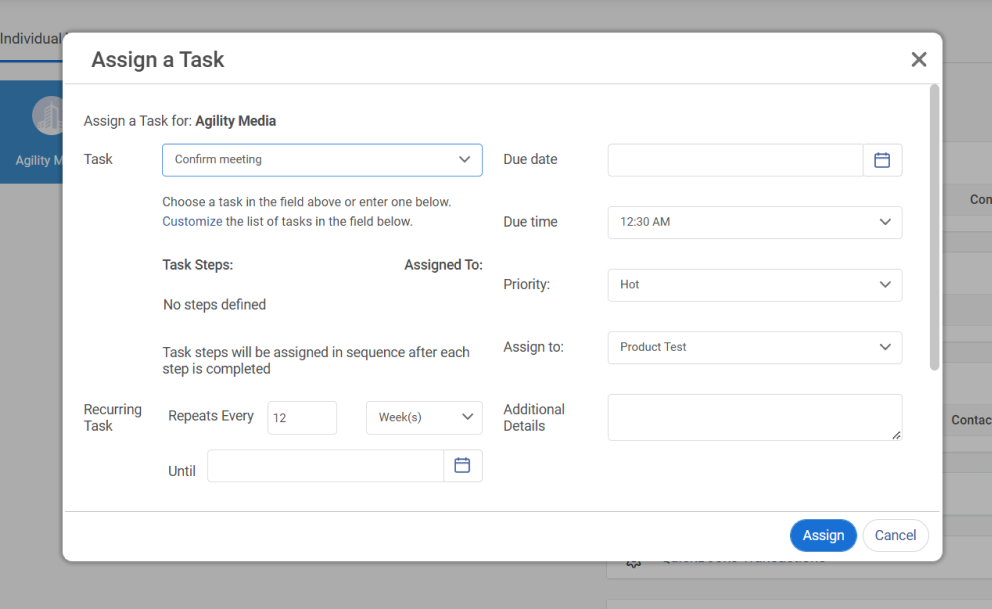
How CRM for Customer Service Enhances Team Performance
A CRM for Customer Service plays a pivotal role in improving your team’s performance by managing day-to-day processes, enhancing collaboration, and offering valuable insights. By leveraging CRM tools, your customer service team can operate more efficiently and deliver exceptional results. Here are some ways how a CRM for customer service helps in enhancing team performance:
1. Easy Communication Across Teams
A key benefit of using Customer relationship management CRM is that it centralizes all communication and customer data in one platform. This enables your customer service team to access past interactions and information from other departments quickly.
Whether it’s a sales team update or a support query, everyone involved can stay informed and aligned. By having a single, shared platform, the team avoids miscommunications, which often lead to delays or confusion. This level of transparency improves response times and allows customer service agents to provide more accurate and timely support.
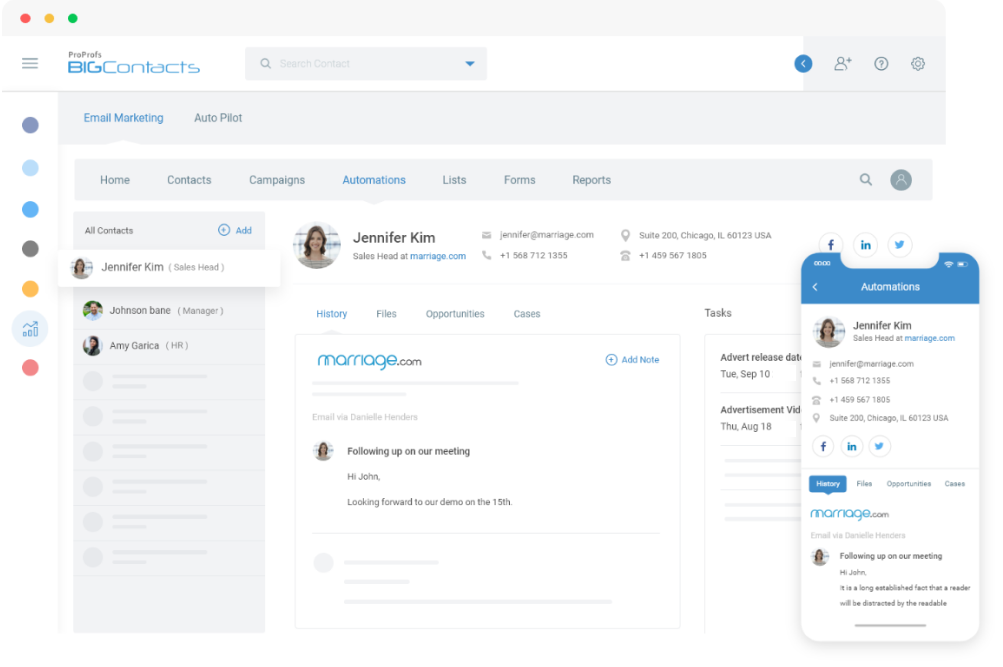
2. Faster Resolution with Automated Processes
Customer service software often includes automation tools that handle repetitive tasks like ticket assignments, follow-ups, or reminders. These tools allow your customer service team to focus on more complex issues rather than wasting time on administrative duties.
Automated workflows ensure that no request is overlooked and every customer interaction is followed up with a timely response. With automation, the team can handle more queries in less time, which improves both efficiency and team performance. Plus, customers are happier when they receive prompt resolutions.
3. Improved Collaboration for Better Problem Solving
The integration of a CRM fosters better collaboration between team members. Customer service agents can easily share information and escalate issues when needed, which helps resolve complex problems faster. With access to the same data and insights, team members are equipped to work together toward a common goal—solving customer issues efficiently.
The shared knowledge and collaborative approach lead to faster problem-solving, which not only boosts team performance but also enhances the overall customer experience.
4. Better Customer Insights for Personalized Support
With Customer service software, your team gains access to detailed customer profiles, which include past interactions, preferences, and issues. This helps your customer service agents provide a more personalized experience to every customer. Instead of starting from scratch each time, agents can quickly see what a customer has experienced and offer tailored solutions.
Personalization enhances the customer experience and makes the team more effective, as they can address concerns with more empathy and efficiency, ultimately improving performance and customer satisfaction.
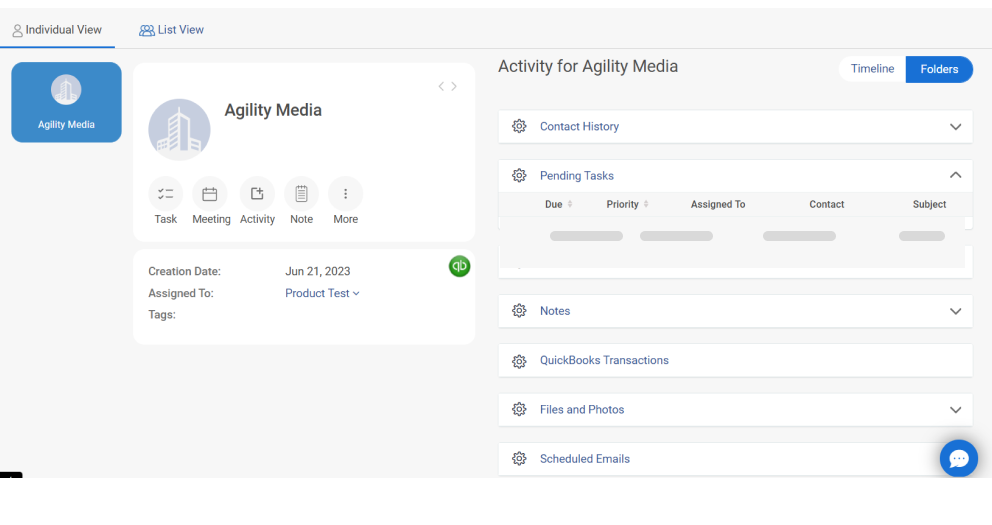
5. Data-Driven Performance Tracking
One of the powerful features of Customer relationship management CRM is the ability to track performance using data and analytics. By monitoring key metrics such as response times, resolution rates, and customer satisfaction, managers can identify areas where the team is excelling and areas that need improvement.
This real-time feedback helps the team make necessary adjustments and optimize workflows. By using data to guide decisions, the team becomes more agile and performance-driven, which leads to consistent improvement in service delivery.
![]()
6. Improved Customer Retention with Proactive Support
Using Customer service software, your team can monitor customer issues before they escalate. CRM systems can flag recurring problems or open tickets that need follow-up, allowing agents to act proactively. This prevents minor issues from becoming major complaints and improves overall customer satisfaction.
A proactive approach not only resolves problems faster but also shows customers that your team is invested in providing the best possible service. This increased efficiency boosts team performance and leads to higher customer retention rates.
7. Effective Knowledge Sharing for Continuous Learnin
Another benefit of Customer relationship management CRM is the ability to integrate knowledge bases into your system. Your team can access a wealth of resources, including FAQs, troubleshooting guides, and solution templates. This ensures that agents don’t waste time looking for answers and can quickly resolve customer issues.
Additionally, this feature encourages continuous learning, as your team can contribute to and update the knowledge base as they encounter new issues. By promoting knowledge sharing, CRM tools help your team stay sharp, reduce training time, and perform better.
8. Reduced Errors and Consistency in Service
CRM systems reduce the chance of human error by automating many processes. For example, when handling customer requests, the system automatically logs every interaction, eliminating the chance of losing important details.
Agents can rely on the system to keep track of customer data and ensure consistency in responses. This consistency builds trust with customers and ensures that the service your team provides is reliable, which improves overall performance and leads to greater customer satisfaction.
9. Enhanced Accountability with Clear Tracking
Customer service software provides clear visibility into each customer’s case, including who is handling the issue and where it stands in the resolution process. This level of transparency holds team members accountable for their tasks, which encourages them to follow through on promises and deadlines.
When everyone knows their responsibilities and how they contribute to the overall process, it leads to more effective teamwork and better performance. Accountability also helps identify high performers and areas where additional support or training may be needed.
10. Scalability to Support Growing Teams
As your customer service team grows, a CRM grows with it. These systems are scalable, meaning they can accommodate more agents and a larger volume of customer queries without compromising performance.
With CRM tools in place, you can easily manage an expanding team and ensure that every agent is equipped to handle customer issues efficiently. The scalability of CRM ensures that your team can continue to perform well, even as demand increases, supporting long-term success.
Now, let’s explore the top 5 CRM tools that are transforming customer service. These innovative platforms leverage innovative technology to streamline support processes, enhance customer interactions, and deliver faster, more efficient resolutions.
Top 5 CRM For Customer Service
To compile this list, I have assessed each tool’s ease of use and scalability, ensuring they meet the diverse needs of consultants. My evaluation includes my personal experiences, insights from reputable reviews, and feedback from industry peers.
| Software | Best For | Pricing |
|---|---|---|
| BIGContacts | Contact Management & Email Marketing for Startups & SMBs | Forever free for small teams. Paid starts at $9.99/month. |
| Zoho Desk | Omnichannel Engagement | Starts at $15.4/user/month |
| Help Scout | Shared Inbox & Collaboration | Starts at $55/month |
| Hiver | Workflow Automation | Starts at $24/user/month. |
| Zendesk | AI-Powered Automation | Starts at $19/user/month. |
1. BIGContacts – Best for Contact Management & Email Marketing for Startups & Small & Medium Businesses
When I first started using BIGContacts, I found it easy to use as compared to some of the other, more complicated CRM tools for customer service I’ve tried in the past. It was refreshingly simple to get started, and I had all my contacts imported in no time.
I really liked how easy it was to organize all contacts into groups and segment them for targeted email campaigns. BIGContacts helped me stay on top of every customer interaction. I could easily log calls, emails, and even social media messages, so I always stayed on track.
The task management features were also helpful – they helped me remember to follow up with leads and customers, which boosted my response times and helped me build stronger relationships. Honestly, BIGContacts made me feel like I had a personal assistant! It freed up so much of my time so I could focus on what matters most – providing the best customer service.
What You’ll Like:
- Effective Contact Management to maintain detailed customer records with options for notes, tags, and personalized fields
- User-friendly task management to simplify organizing and tracking tasks with an intuitive drag-and-drop interface
- Flexible email templates to craft sleek, professional emails in minutes using customizable templates
- In-depth reporting & analytics to access detailed insights into sales performance, marketing campaigns, and customer engagement
- Awesome human support 24/7 via phone, chat, and knowledge base
- The interface is user-friendly and helps in navigating easily
What You May Not Like:
- No downloadable or on-premise version
- No dedicated account manager for the free plan, unlike the paid
Pricing:
- Forever free for small teams. Paid starts at $9.99/month.
2. Zoho Desk – Best for Omnichannel Engagement

Image Source: Zoho
Zoho Desk has been truly helpful for my customer support team. It brought all our communication channels—email, phone, social media, chat—into one place. This omnichannel approach was a lifesaver! No more jumping between different platforms; we had all the customer context right there in front of us.
I liked how we could automate workflows for common requests, freeing up agents to focus on more complex issues. Plus, AI-powered features like Zia helped me with things like sentiment analysis and suggested responses, which really boosted my team’s efficiency.
We could track customer interactions, segment customers, and personalize our responses. This helped us build stronger relationships with our customers and improve their overall experience.
What You’ll Like:
- AI-powered assistant Zia to help with sentiment analysis, response suggestions, and task automation
- Comprehensive reporting and analytics to track key metrics and identify areas for improvement
- Self-service portal to create a help center where customers could find answers themselves
- Customizable dashboards to see the most important metrics and track our team’s performance in real time.
What You May Not Like:
- Some users have reported experiencing occasional bugs or glitches
- The mobile app has received mixed reviews, with some users finding it less intuitive than the desktop version
Pricing:
- Starts at $15.4/user/month.
3. Help Scout – Best for Shared Inbox & Collaboration
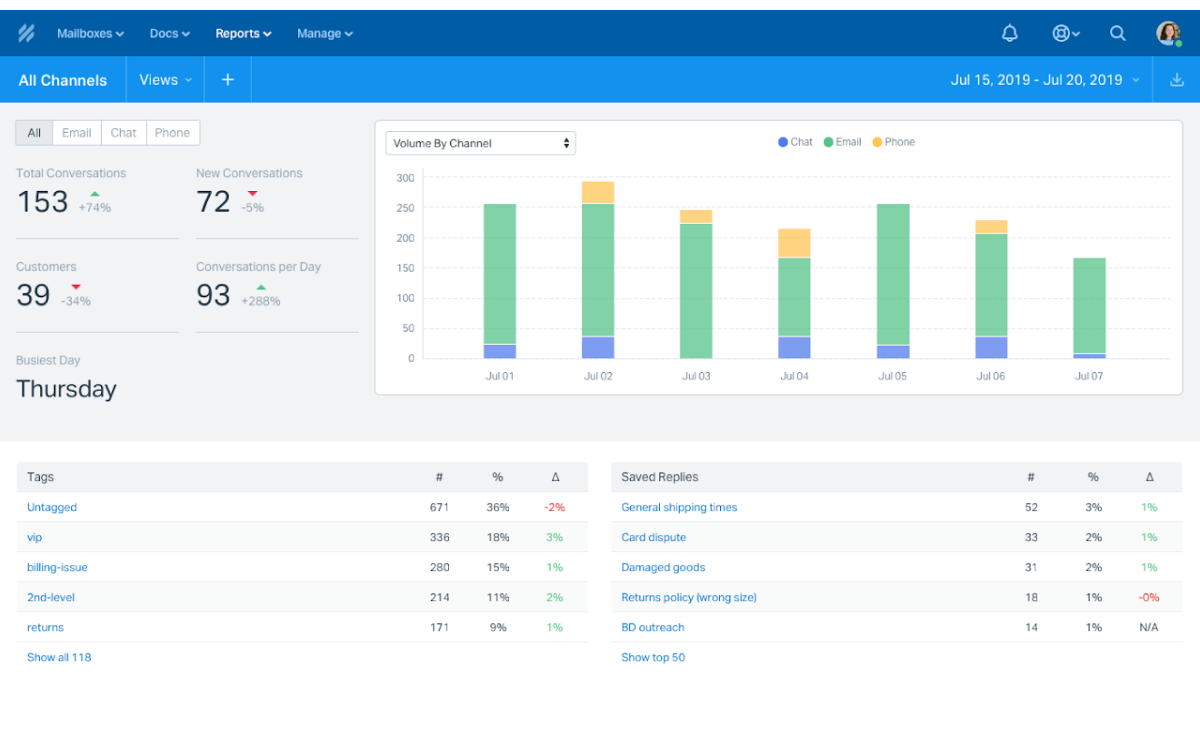
Image Source: Google Workspace
When I switched to Help Scout, our customer service team felt like they’d been given a personal assistant. The shared inbox became our central hub, making it incredibly easy to collaborate on customer inquiries, track conversations, and ensure nothing slipped through the cracks.
What impressed me most was how Help Scout put the customer front and center. With features like collision detection, we avoided duplicate replies, and private notes helped me to discuss complex issues behind the scenes before responding.
Plus, the knowledge base feature empowered customers to find answers themselves, freeing up our team to focus on more complex issues. Help Scout truly streamlined our customer service operations and helped us build stronger client relationships.
What You’ll Like:
- Automates routine tasks like assigning conversations and sending follow-up emails
- Live chat to provide real-time support to website visitors and answer their questions instantly
- Reporting and analytics to track key metrics like response times and customer satisfaction to identify areas for improvement
- Collision detection to prevent multiple agents from responding to the same customer query simultaneously
What You May Not Like:
- Help Scout offers some customization options, but it is not as flexible as some other platforms
- It only offers email and chat support, which can be inconvenient for some users
Pricing:
- Starts at $55/month.
4. Hiver – Best for Workflow Automation
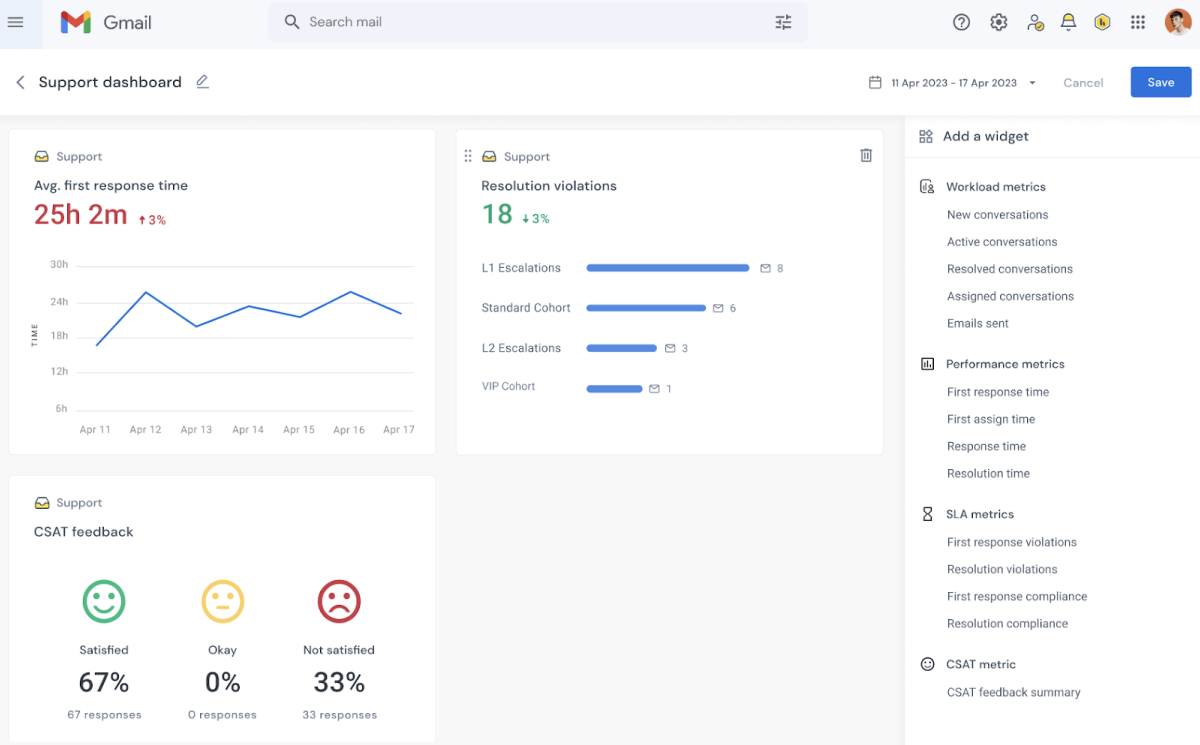
Image Source: Hiver
Before Hiver, my shared inbox was a chaotic mess of emails with no clear ownership or accountability. But once I started implementing Hiver, everything changed. I could assign emails to specific team members, track their progress, and collaborate seamlessly using internal notes.
What truly revolutionized our team’s customer service, though, was Hiver’s automation. It helped me to set up workflows to automatically tag and categorize incoming emails, ensuring that urgent inquiries were prioritized and routed to the right people.
This drastically reduced our response times and improved customer satisfaction. Hiver’s analytics also gave valuable insights into our team’s performance, helping us identify improvement areas and optimize our workflows even further.
What You’ll Like:
- Customizable email templates to save time by creating pre-written responses to common customer questions
- SLA monitoring to track your service level agreements and ensure that you are meeting your customer service goals
- Customer satisfaction surveys to gather feedback from your customers and measure their satisfaction with your service
- Automated email reminders to set up automatic reminders for yourself or your team members to follow up on customer inquiries, ensuring timely responses
What You May Not Like:
- Primarily focuses on email-based support and lacks built-in support for other channels like live chat or social media
- Some users have reported that the reporting features are not as comprehensive as they would like
Pricing:
- Starts at $24/user/month.
5. Zendesk – Best for AI-Powered Automation
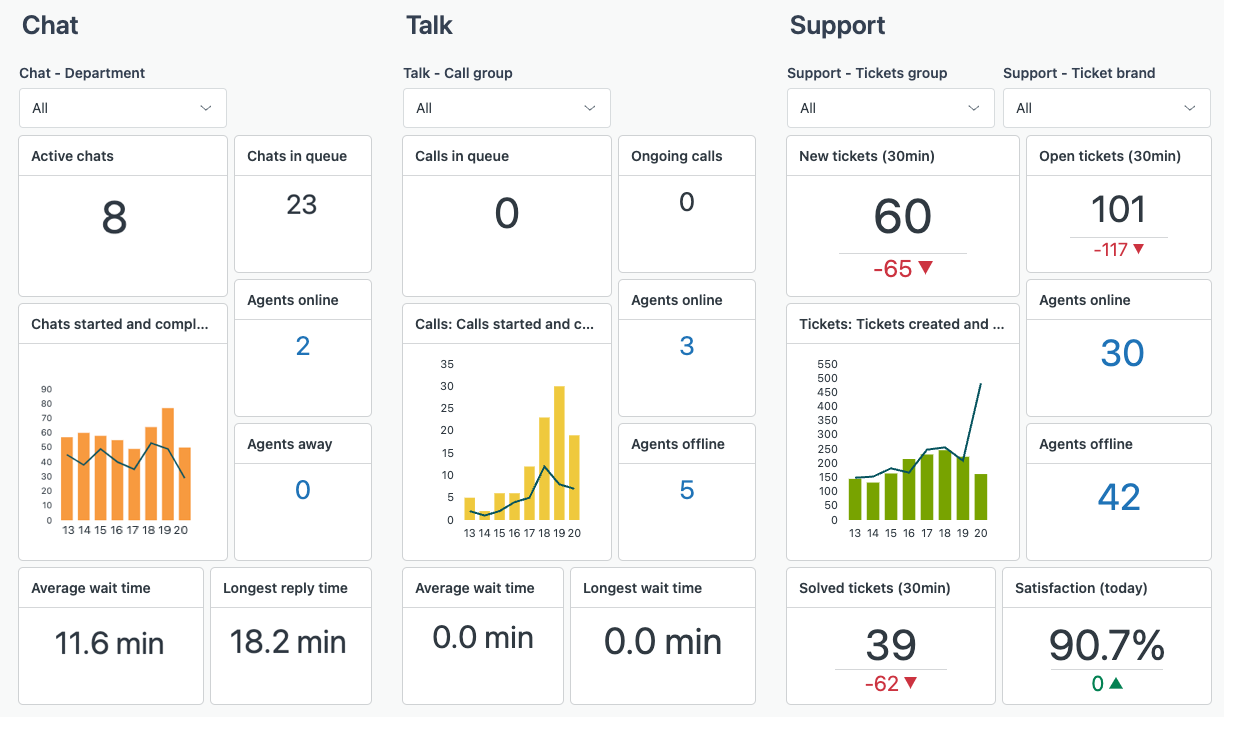
Image Source: Zendesk
I found Zendesk to be an incredible tool for improving our customer service efficiency. Its AI-powered automation was quite helpful and it effortlessly handled routine inquiries so our team could focus on tackling more complex issues.
The unified dashboard brought together channels like email, chat, and social media into one place, ensuring no customer query ever slipped through the cracks. I also loved how the customizable ticketing system helped us to prioritize and manage requests effectively.
The analytics and reporting tools were another huge plus, giving us detailed insights into our team’s performance. These insights helped me identify weak spots and continuously refine my team’s support strategies. Overall, Zendesk’s effective suite of features made a significant difference in elevating the quality and efficiency of our customer service operations.
What You’ll Like:
- Omnichannel support to manage all customer interactions from various channels in one place
- Self-service options to help create a knowledge base to empower customers to find answers independently
- Performance dashboards to track key metrics and gain insights into your team’s performance
- Community forums to build a dedicated space for your customers to connect, share, and find solutions to common problems
What You May Not Like:
- Some users have reported performance issues during high-traffic periods
- The platform can be complex to set up and configure, requiring some technical expertise
Pricing:
- Starts at $19/user/month.
Evaluation Criteria
The evaluation of products or tools chosen for this article follows an unbiased, systematic approach that ensures a fair, insightful, and well-rounded review. This method employs six key factors:
- User Reviews / Ratings: Direct experiences from users, including ratings and feedback from reputable sites, provide a ground-level perspective. This feedback is critical in understanding overall satisfaction and potential problems.
- Essential Features & Functionality: The value of a product is ascertained by its core features and overall functionality. Through an in-depth exploration of these aspects, the practical usefulness and effectiveness of the tools are carefully evaluated.
- Ease of Use: The user-friendliness of a product or service is assessed, focusing on the design, interface, and navigation. This ensures a positive experience for users of all levels of expertise.
- Customer Support: The quality of customer support is examined, taking into account its efficiency and how well it supports users in different phases – setting up, addressing concerns, and resolving operational issues.
- Value for Money: Value for money is evaluated by comparing the quality, performance, and features. The goal is to help the reader understand whether they would be getting their money’s worth.
- Personal Experience / Experts’ Opinions: This part of the evaluation criteria draws insightful observations from the personal experience of the writer and the opinions of industry experts.
Unlock the Power of CRM for Better Customer Support
Customer support isn’t just about solving problems—it’s about building relationships and trust. To achieve this, having the right tools in place is key. A good CRM system can be your team’s secret weapon, helping you deliver personalized responses and keeping track of every interaction with your customers. By maintaining a clear and unified view of customer data, you can anticipate their needs and create experiences that keep them coming back.
With the right CRM, you can manage workflows, reduce response times, and ensure no customer query falls through the cracks. If you’re exploring CRM options, consider tools like BIGContacts, which I found particularly useful for managing customer relationships. It’s user-friendly and offers features that can enhance your support efforts.
The best part? It even has a forever-free plan, making it a great starting point if you’re new to CRMs. Whether you’re a small business or a growing company, the right CRM can make all the difference in elevating your customer support.
FAQ
Can CRM tools help in managing customer service teams remotely?
Absolutely! CRM tools make managing customer service teams remotely so much easier. They let you track team performance, assign tasks, and monitor progress from anywhere. With features like centralized communication and real-time updates, everyone stays on the same page. Plus, detailed insights help you ensure your remote team delivers consistent, high-quality customer support.
What role does CRM automation play in improving customer service?
CRM automation plays a huge role in improving customer service by handling repetitive tasks like data entry, follow-up reminders, and ticket assignments. This lets you focus on solving customer issues faster and more efficiently. It ensures no query slips through the cracks, providing personalized responses and creating a smoother, more satisfying experience for your customers.
How can CRM integrate with existing customer service tools like chatbots or helpdesk software?
CRM can easily integrate with customer service tools like chatbots or helpdesk software, creating a seamless flow of information. For example, chatbots can pull customer data from the CRM to personalize interactions, while helpdesk tools can sync ticket details directly. This integration ensures better communication, quicker responses, and a more efficient support process overall.
How does CRM help in tracking customer feedback for service improvements?
A CRM helps you track customer feedback by organizing it in one place, making it easy to identify trends and common issues. You can log surveys, reviews, and support interactions to gain insights into what’s working and what needs improvement. This way, you can use feedback to enhance your service and keep customers happy.
FREE. All Features. FOREVER!
Try our Forever FREE account with all premium features!






